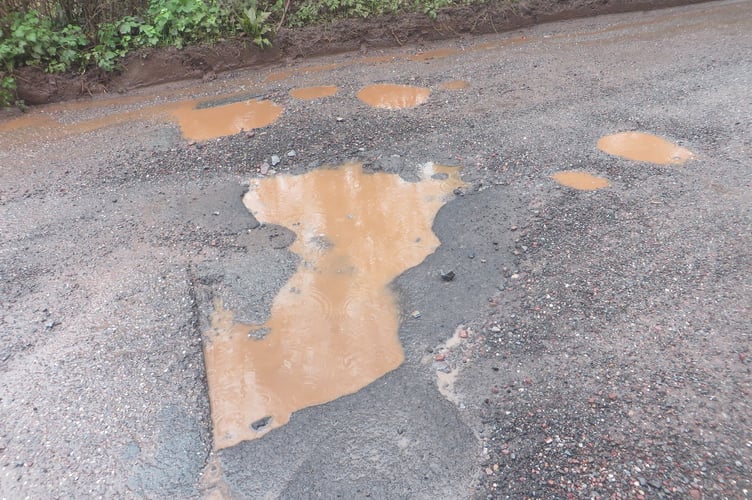MODERNISATION of the council and road repairs are at the top of the agenda for Devon County Council’s new leader who will also be shouting for rural areas.

Conservative James McInnes, who has represented Hatherleigh and Chagford since joining the local authority in 2005, says he has big boots to fill, succeeding John Hart (Con, Bickley and Wembury), who was leader for 15 years.
“It’s a big step up for me and John was a great leader, but you have to do your own thing. Everybody has something slightly different to bring to the role,” he said.
A West Devon Borough Councillor for 16 years, a member of Sourton Parish Council in the past and a long-standing member of Dartmoor National Park, Cllr McInnes knows his way around local government.
He has chaired development management (planning) committees and been cabinet member for Devon’s children’s services for seven years and adult social care for the past three years.
Born and brought up in Northlew, five miles from Hatherleigh, the retired farmer lived and worked in the Okehampton area his whole life, and says his primary task is to continue with council modernisation.
Technology improvements and artificial intelligence could be a way of cutting costs for councils. Among the measures that Devon will be taking to save money will be reducing its workforce which stands at 5,000, a thousand more than a decade ago.
The council has agreed an extra £12 million for potholes and road repairs this year, and this will be a top priority for the leader.
The Conservative council leader said investment in roads has suffered because of 10 years of austerity, the pandemic and cost-of-living crisis.
“We do need to support people who need care and our children in care, but we also need to look after the basic infrastructure across Devon and that is our roads, and that is why we have agreed extra funds for this and I hope that will continue in future years.”
The backlog of repairs will cost in the region of £200 million to fix.
“Twelve million isn’t enough, but it’s more than the government have given us which was six million,” he said.
“It’s a drop in the ocean, and we will be asking for more from whichever government comes into power.
“We do have a legal duty to fix potholes, we must never forget that, and I would say to everybody, please report it, don’t just presume everybody else is doing it.”
He said problems also include drainage and road surfaces which “didn’t last as long as they used to”.
The council has managed to balance its budget, which it is required by law to do, but its overspend on special educational needs and disabilities (SEND), which doesn’t form part of the main accounts, is an ongoing issue.
The authority was able to do a deal with the government before the general election was announced to tackle this overspend of more than £100 million.
A ‘safety valve’ scheme means £95 million will be paid over a number of years to reduce the SEND burden, as long as the council meets set goals. The first payment has been made.
Cllr McInnes is enthusiastic about the Devon and Torbay devolution deal, which is currently on hold because of the general election, which he believes will make every area of the county better off in terms of housing, transport and adult education.
And he wants to make sure that district councils have a big say in the decision-making when the combined county authority is created.
“I know people say everything is Exeter-centric, I don’t agree with them. I understand the rural areas feel a bit isolated and we have to make sure as a council that we counteract that.
“I have not forgotten my rural roots. I shall be making sure that the council appreciates that Devon is a very large rural county.”
Cllr McInnes said he was known for giving everyone a fair hearing, especially during his time as chairman of the development management committee.
“I will listen to everyone’s arguments,” he said. “At the end of the day, difficult decisions need to be made but it’s much better if people feel they have been given a fair hearing.”
By Alison Stephenson




